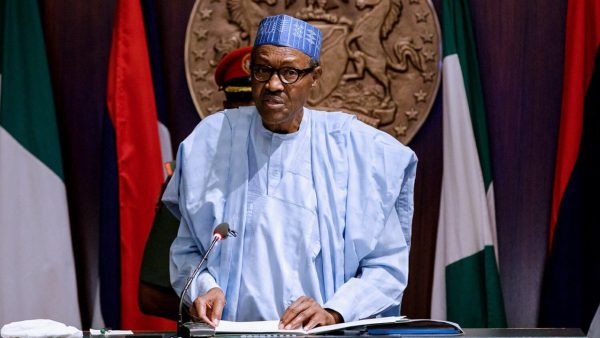Why Nigeria’s Post-COVID-19 Recovery Is Doomed To Fail

The COVID-19 pandemic will have economic consequences for many countries. In Nigeria, the country’s lockdown froze economic activities, causing job losses and supply chain disruptions.
These limitations, coupled with the nation’s dependence on oil for revenue and foreign exchange has made it particularly vulnerable to the unprecedented oil price crash triggered by a collapse in demand.
Some forecasts suggest that Nigeria’s unemployment rate could rise to 33.6% (or 39.4 million people) by the end of the year if urgent steps are not taken. At the end of 2018, it stood at 23.1% (or 20.9 million people). In addition, a recently released National Bureau of Statistics household survey showed that over 40% of Nigerian households could be classified as poor. It projected that the economy could shrink by anything from 4.40% to 8.91%. This would depend on the length of the lockdown period, the potency of economic plans that are put in place, and, in particular, the amount of stimulus spending.
To try and avert a drastic decline in economic growth, the government announced a stimulus package as part of its post COVID-19 economic sustainability plan. It has promised a stimulus spending package of N2.3 trillion (about $5.9 billion) with the aim of keeping economic contraction to minus 0.59%.
While this seems to be a good start, the government’s plan leaves a lot to be desired.
On the face of it, the general objectives of the plan appear laudable. The plan seeks to: stimulate the economy by preventing business collapse and ensuring liquidity, retain or create jobs in key areas like agriculture and housing, undertake growth enhancing and job creating infrastructural investments, promote manufacturing and local production, and extend protection to the very poor and other vulnerable groups.
A number of key projects are also included in the plan. Some of the biggest are: a mass agricultural programme that is expected to bring between 20,000 and 100,000 hectares of new farmland under cultivation in every state, an extensive public works and road construction programme, a mass housing programme that is expected to deliver up to 300,000 homes annually, the installation of solar home systems for up to five million households, and strengthening of the social safety net.
Also proposed is support for micro, small and medium enterprises, an 80% reduction in the registration fees for food, drugs, cosmetics, medical devices, and chemicals by the National Agency for Food and Drug Administration and Control (NAFDAC) as well as a waiver of administrative charges for product licence renewals.
The government also plans to set up a survival fund to give payroll support to small and medium-sized enterprises, and to promote the use of domestic gas as well as technology hubs.
Ministers whose portfolios these fall under will be responsible for supervising implementation of the plans.
The problem is that these broad objectives sound like the typical campaign promises of successive Nigerian governments. This is true of the current one too. As with plans of this nature, the questions are: Are they sensible? Will they be implemented?
As usual, the Nigerian government has ignored the fundamental problems that have plagued previous economic plans.
Crucial sectors, such as power and education, have not been adequately considered and these are major omissions.
Electricity in Nigeria is both erratic and expensive. Consistent power supply would boast the productivity of businesses as well as improve the country’s economic outlook.
Investing in the power sector would also help in the storage and processing of agricultural produce, another major problem plaguing the Nigerian agricultural and manufacturing sectors.
In addition, investing in the education of Nigerians (particularly in terms of entrepreneurship and practical skills) could help reduce the unemployment rate.
There is also the problem of implementation. Successive Nigerian governments have spent huge sums on various economic programmes in the past with very little to show for them due to ministerial corruption and mismanagement. This problem has stymied countless initiatives.
Another problem is that some features of the plan are very vague. For example, how exactly will the social safety net be strengthened? Who will be the beneficiaries and how will it work in practice?
Some other unanswered questions are; how can small and medium enterprises access the support that is being proposed? And why isn’t there any mention of support for the health sector ?
Successive Nigerian governments have had numerous agricultural and housing economic schemes in the past. The results have not been encouraging.
A better way to stimulate the Nigerian economy at this time would be to have specific and measurable objectives that can unleash the potential of Nigerians. For example, the government should focus on creating an enabling environment for businesses to thrive. This would include investing in the provision of consistent power supply and reducing the current cost of power for businesses, providing easily accessible business loans to small scale businesses at reasonable interest rates, investing in education and reskilling of the populace, reducing bottlenecks at Nigerian ports for small scale businesses, improving the transportation infrastructure and helping businesses with a long-term mortgage scheme.
The costs, location, and duration of any tangible project should be made publicly available so that they can be monitored by the general public, and by transparency NGOs like BudgiT and Tracka.
In addition, the conditions for all business loans should be made clear and the process must be transparent.
These steps would prevent businesses – particularly small scale entrepreneurs who have been particularly hard hit by the COVID-19 pandemic – from collapsing. In addition, they would stimulate economic growth.
By Dr. Olarewaju, Lecturer (Tef) in Staffordshire Business School at Staffordshire University.







